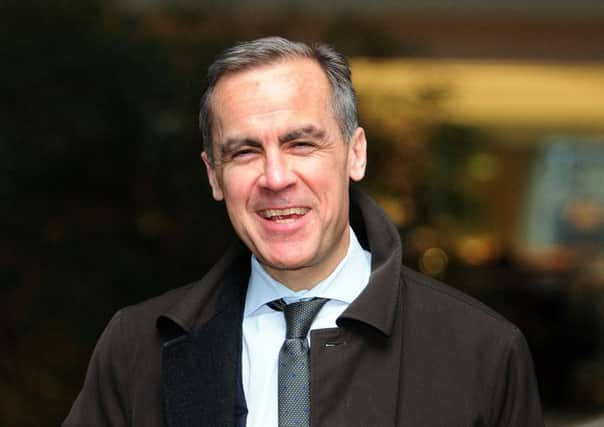New rate-setter prepared to challenge Mark Carney
This article contains affiliate links. We may earn a small commission on items purchased through this article, but that does not affect our editorial judgement.


In her first meeting with the Treasury select committee, Hogg said there was no sign of “group think” among the Bank’s rate-setters, and that she was willing to take “painful decisions” if they are the “right thing to do”.
Hogg will take up the role of deputy governor for markets and banking from March, overseeing the Bank’s balance sheet and sitting on the MPC, the financial policy committee (FPC), the prudential regulation committee (PRC) and the Court of the Bank of England.
Advertisement
Hide AdAdvertisement
Hide AdWhen asked whether she was capable of challenging and disagreeing with the governor publicly, she replied: “I do.”
“I have challenged him more in my pre-existing role. In my responsibilities we have disagreed. They tend to be around staff issues or particular parts of the organisation.
“Sometimes I have ended up agreeing with him and sometimes he has ended up agreeing with me, but there are a number of examples when we have not been absolutely at sync in the beginning.”
Hogg, who will replace Minouche Shafik on the nine-strong MPC, is currently the Bank’s chief operating officer and has held down jobs at Santander, the consultancy giant McKinsey and financial information firm Experian.
She said she did not think group-think – where a variety of views are not taken in account – was “alive and well at the Bank”, adding that her broad range of previous careers would help bring a different perspective to its decision-making.
MPs also tightened their focus on Hogg’s family links, asking whether her brother’s job working within the strategic planning group at Barclays would prove a conflict of interest when carrying out her duties on the PRC.
“I don’t discuss work with him and he doesn’t discuss it with me, we mostly talk about his children,” she said.
Advertisement
Hide AdAdvertisement
Hide AdShe added she “did not know” what her brother did before asking him recently while applying for her new role at the Bank.
But pursuing the issue further, committee chairman Andrew Tyrie highlighted that the PRC has direct responsibility for regulating Barclays and asked whether she had considered recusing herself from meetings that discuss the lender.
Hogg said she had always declared areas of conflicts of interests with the Bank and was compliant with all of its codes of conduct because she helped to write them.
She said it was “a possibility” she could recuse herself from discussions about Barclays during PRC meetings and would raise the issue with Carney and the chair of the committee.
The Bank of England has come under fire in recent months after its predictions of a significant slowdown in the UK economy following the Brexit vote failed to materialise.
In written responses to a Treasury committee questionnaire filled in prior to the hearing, Hogg said Brexit uncertainty still posed a medium- and long-term risk to the economy.
“The outcome of the negotiations with Europe will affect many parts of the economy in the medium and long term. Today we are still uncertain about the effects on people and their opportunities to work, develop, innovate and invest,” she wrote.
“The nature of future trading relationships and the transition to those arrangements will affect the productivity and potential of the economy. These are things on which monetary policy can have no bearing. But while they are still uncertain, and while the end effects could have both upside and downside to our central forecasts for inflation and growth, they remain a risk to the outlook.”
Advertisement
Hide AdAdvertisement
Hide AdOn short-term risks, she said the more immediate concern was a potential drop in household spending.
Rising food and fuel prices have pushed inflation to a two-and-a-half-year high of 1.8 per cent in January, while retail sales unexpectedly fell by 0.3 per cent in the month.
Ballooning import prices triggered by the Brexit-hit pound are a key factor behind the rise in everyday prices as companies pass their soaring costs to consumers.
Hogg added: “More immediately, the degree to which households change their spending and how quickly they make those changes could have a material impact on the economy.
“Following several years in which real income growth averaged around 2 per cent, households are beginning to face a squeeze on their incomes as the effect of the 18 per cent depreciation of sterling since November 2015 feeds through.”
